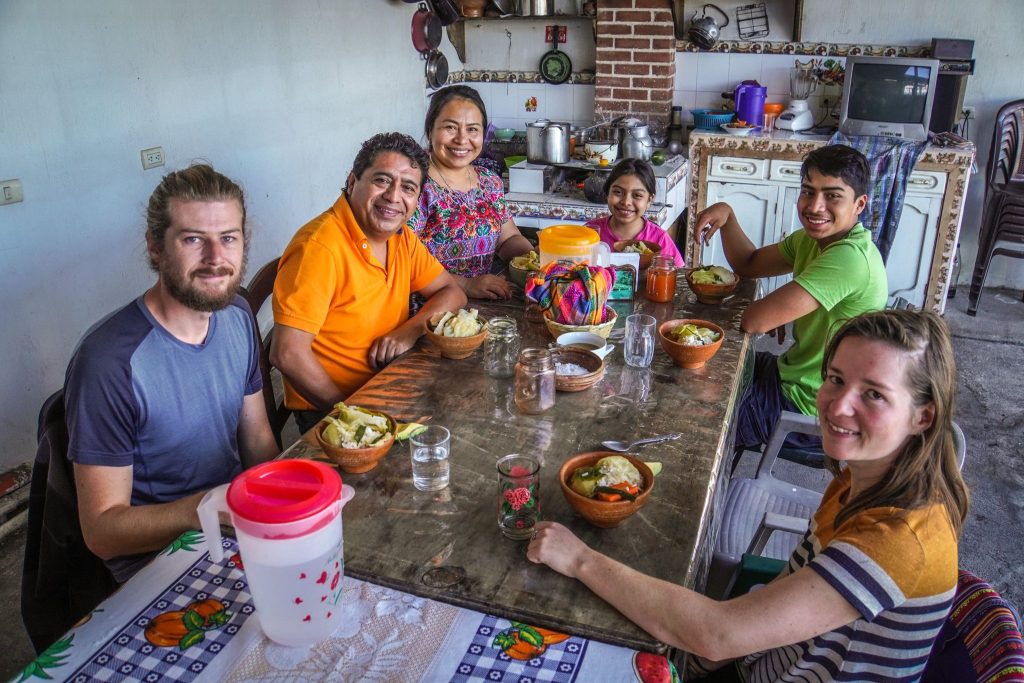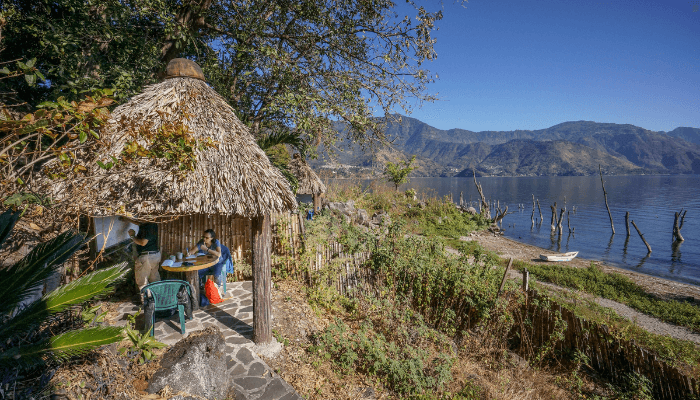With more and more people becoming aware of the wider world around them and wanting to play a part in making it a better place, voluntourism has become a buzzword. For many travelers, it’s not enough to just visit a place; they want to donate their time and energy to make a difference there too.
Lake Atitlán and its people face many challenges, from environmental to socio-economical, and volunteering opportunities in the area abound. However, instead of just signing up for the first one that you come across, you need to make an informed decision or you’ll just be wasting your time. These are the five things to ask yourself when choosing to volunteer at Lake Atitlán:
1. Is it really a volunteering opportunity?
You’ll often see hostels and farming projects asking for volunteers but what they offer isn’t necessarily what you would like to think of as volunteer work. Often it is really just a work exchange, where you provide your labor and in return, you get free or discounted accommodation and food.
These work-exchange opportunities are great if you’re traveling on a strict budget and need to save your money. However, they have some serious downsides too. For example, you might be taking away what could have been a job opportunity for a local person. That person could have used to money to feed their family and put their kids through school. Their money would definitely have gone back into the local economy, which in turn would have meant someone else could have earned more money to feed their family and put their kids through school.
Another problem with work exchanges is that the owners of these establishments are often foreigners rather than local people. They may not necessarily be paying taxes in Guatemala: taxes that could have gone to help improve anything from infrastructure to healthcare. When you provide your labor for free, you’re really helping them improve their bottom line, even if it has no real impact on the surrounding community.
2. Does the project use local input?
One of the biggest criticisms of voluntourism is that it perpetuates the idea of the Great White Savior: the person coming from a rich country to give hand-outs to the poor local people. The problem with this savior complex is that it can encourage local people to sit back and not take charge of their own destiny. Essentially, it turns them into beggars and does nothing to redress the imbalance of power between rich nations and poor ones.
Another problem with the Great White Savior approach is that there’s often no real understanding of local culture and what the challenges actually are. This is why local input in a project that provides volunteering opportunities is crucial. Locals know what has worked in the past and what hasn’t. They also see the bigger picture and can see which activities might be doomed to fail. They can help come up with solutions that will not only make an impact right now but will be sustainable in the long run.
So, before you sign up, find out more about who runs the project. Are there local people on the board of directors? Are there local people on the staff? And if there are local people on the staff, are they doing more than just working as cleaners?
3. Does the project really help?
It may be fun to paint a school but does it really benefit the children, especially if another group of volunteers painted those same walls just last year? A pretty-looking school won’t mean anything if the roof is falling apart, if the children who go there to learn don’t have access to books or stationery, or if they haven’t had a nutritious meal today.
Before you sign up for that volunteer position, you need to take a critical look at how the project and your work in it will really impact the local community. Sometimes the solution is much simpler than the grandiose schemes the organization may be dreaming up.
4. What skills do you have to offer?
When you do find a project that piques your interest, it’s time to ask what you can bring to the table. If you’re experienced at fundraising, for instance, it would be silly to spend your days doing unskilled, manual labor when you could be spending it helping the project to streamline its fundraising strategy instead.
Take a critical look at the skills you have and how they can benefit the project. Of course, someone needs to take care of the details, and yes, sometimes you may have to get your hands dirty too. However, keep your eyes open for ways that you can use your skills to fill a gap the project may not even have thought about.
5. How can you still have an impact even after you’ve left Guatemala?
After your trip, it’s great to be able to go back home and say that you helped build a school or taught some local kids a bit of English, or helped feed and inoculate some street dogs. But what happens then? Is your time in Guatemala just going to become a fond memory or can you continue to have an impact? There are many ways to remain involved from afar.
For instance, you can help raise awareness of the project and the issues it’s trying to address. You can encourage people in your community to donate. You can remain in touch with the project and find out how things are going and if they have any new needs. Every now and then, you can call that kid you’ve bonded with over helping with their school work and remind them that you haven’t forgotten about them.
Simply showing that you haven’t turned your back on them will do wonders for boosting the morale of those who remain behind at the forefront.





Thx
<3